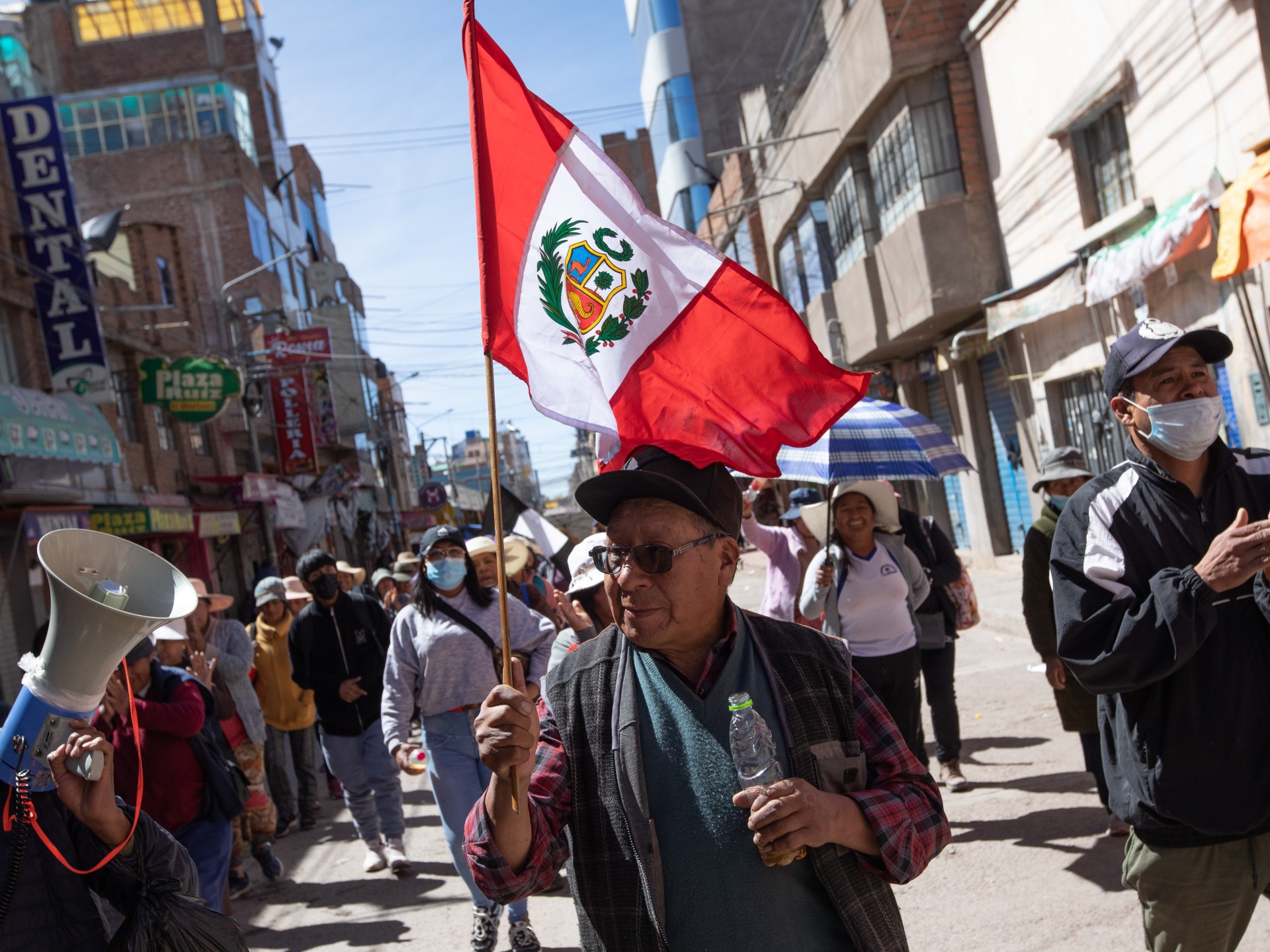Roadblocks and new mass demonstrations continue in Peru, following the extension of the state of emergency in several regions of the country, which is witnessing a protest against President Dina Polarti, which has left at least 42 dead within 5 weeks.
The measure announced by the Peruvian government last Saturday - which is valid for 30 days - allows the army to intervene to maintain order, and requires the suspension of a number of constitutional rights.
Such as freedom of movement and assembly and the protection of the privacy of homes.
In addition to the capital, Lima, a state of emergency was declared, especially in the provinces of Cusco and Puno (in the south of the country), and in the port of Callao (near the capital).
A state of emergency was declared in mid-December in all parts of the country for a period of 30 days.
On Sunday, traffic was still cut off in 10 out of 25 regions in Peru, especially in the south;
The center of the protests.
Among the areas in which the roads were cut off were Puno, Arequipa and Cusco, according to what was announced by the authority in charge of land transportation, noting that there had never been so many traffic barriers during the current crisis.
He refused to resign
In Arequipa, dozens of people blocked the Panamericana Sur highway, which connects the Tacna region to the border with Chile.
However, last Saturday, the authorities reopened Cusco International Airport;
The main entry gate for tourists arriving in the south of the country, after it was closed the previous Thursday.
However, the trains - which are the only way to go to the famous Machu Picchu castle - are still suspended, and local unions assert that the tourism sector is losing about 7 million soles (about 1.7 million euros) per day due to the crisis.
Protests erupted against Pollarte after the dismissal of Socialist President Pedro Castillo on December 7 and his arrest on charges of attempting a coup by seeking to dissolve the parliament he was preparing to overthrow.
Polwarti - who was Vice President Castillo - assumed the presidency as his successor under the constitution, and she belongs to his left-wing political party itself.
But the demonstrators who consider her a "traitor" are calling for her departure and for immediate elections, and she refuses to resign.

